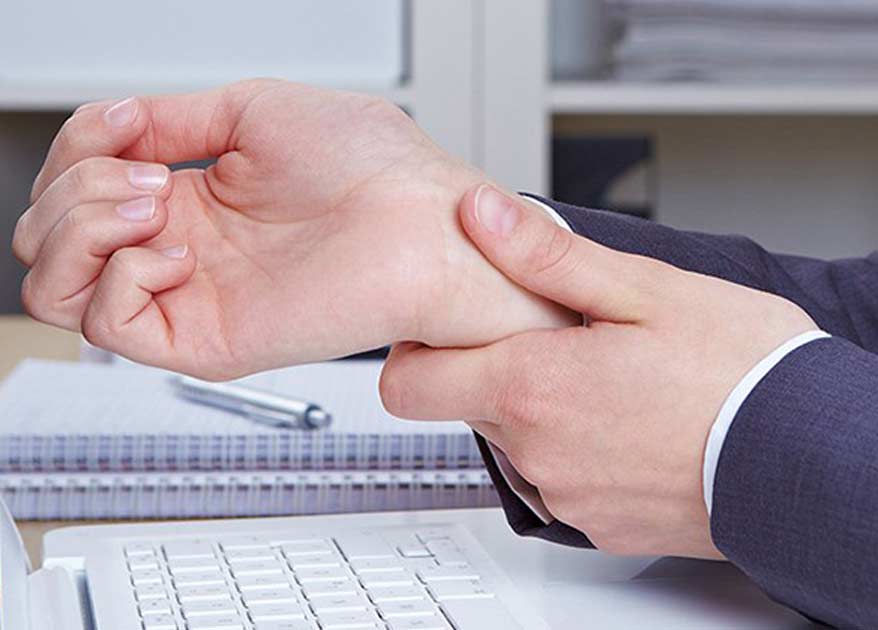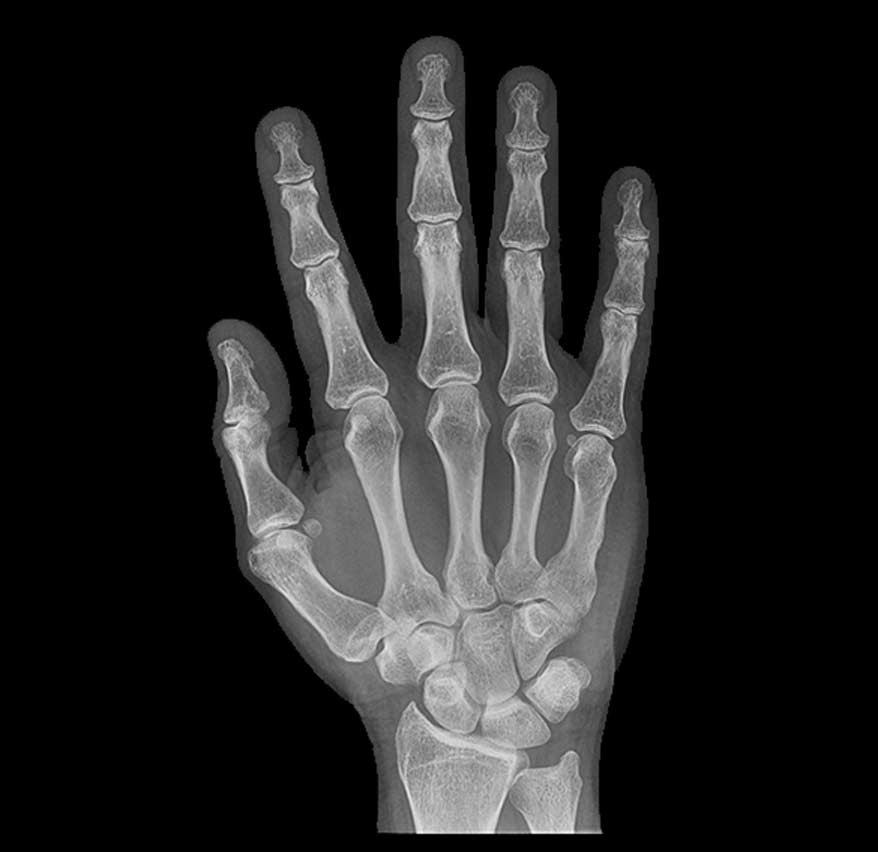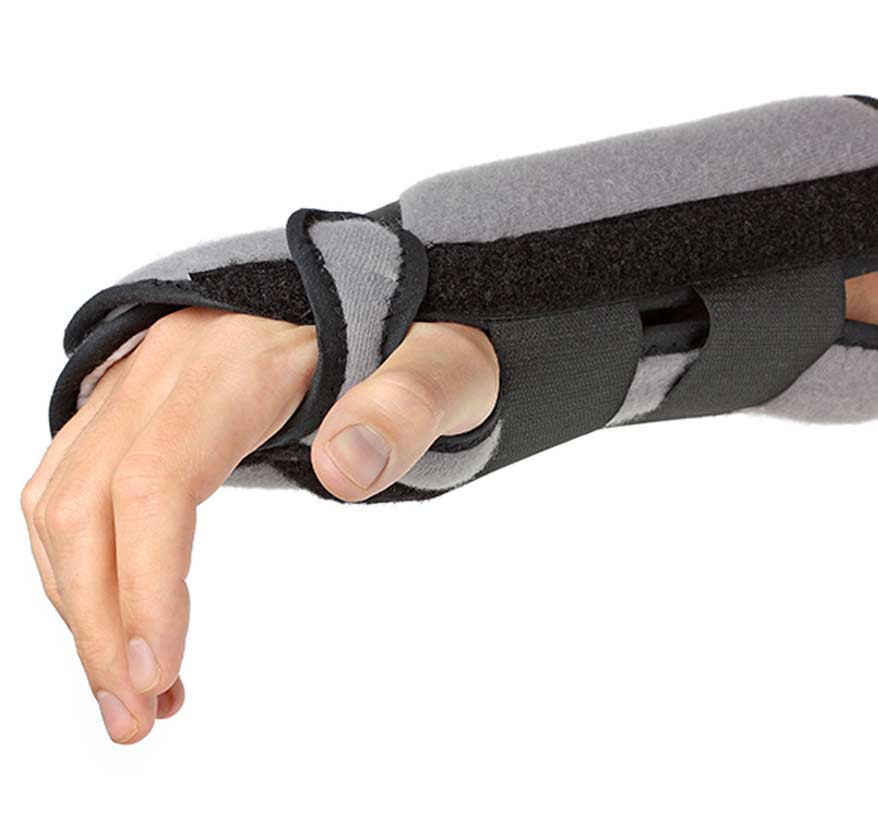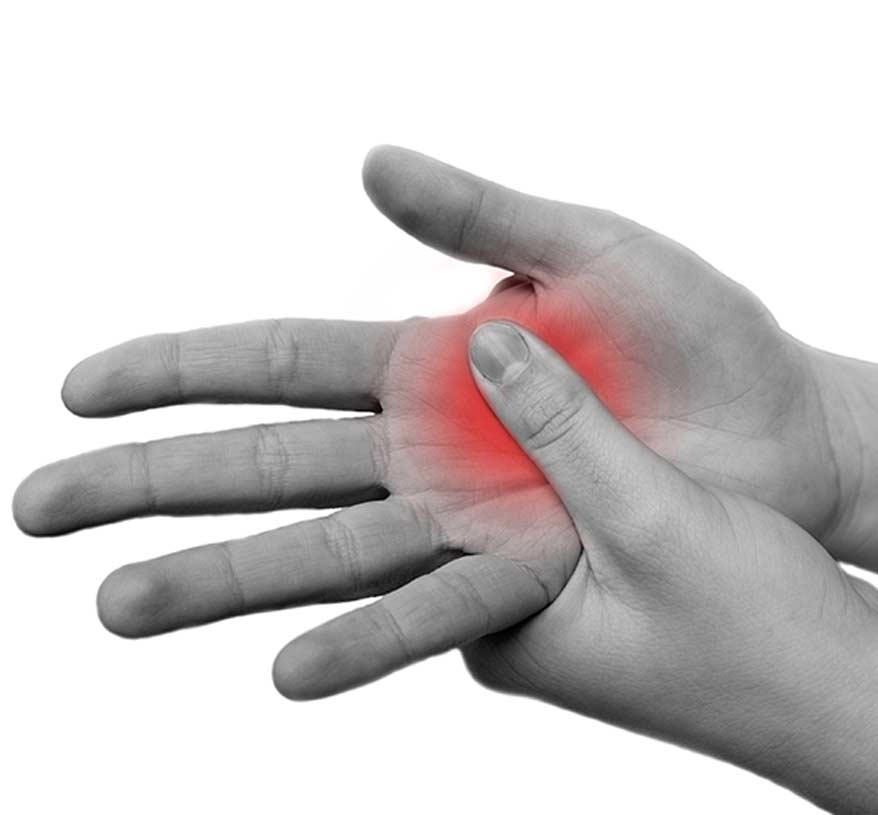Find true relief from your hand discomfort with help from our doctors.
There are a number of hand problems that are possible to encounter. After all, you use your hands in nearly every activity, ranging from everyday mundane activities to more intense, sports-related encounters. Perhaps even more challenging is the fact that resting your hands after an injury is nearly impossible, because they still need to be used throughout the day in one way or another.
- Your hand doctor in Orange County can help diagnose and treat hand problems
- Our goal is to help you return to normal activities as soon as possible
At Orange County Orthopedic Center, we see patients for orthopedic hand conditions such as:
- Carpal tunnel syndrome
- Fractured or broken fingers
- Sprained fingers
- Hand fractures
- Nerve injuries
- Fingertip injuries
- Arthritis of the hand or thumb
- Ganglion cysts
- Trigger finger
- “Baseball” finger
- Fractures, sprains, and other injuries in the wrist


Should I see a doctor?
You should see a hand doctor in Orange County for any type of concern with your hand. There are a lot of orthopedic conditions that can result in pain or discomfort in your hand, and the treatment of a lot of them depend on early intervention in order to find relief and prevent further damage.
Contact our office if you notice any sudden changes to the appearance of your hands, such as coloring, or if you feel anything different. This can include sensitivity to temperatures, pain, discomfort, lack of mobility, numbness, weakness, tingling, and more. A thorough consultation at our center will help pinpoint the cause of your pain and start the treatment process.
If you have injured your hand, apply ice for 20 minutes to prevent swelling. While some hand injuries are minor and don’t require anything further, it is still a good idea to get checked out to ensure that you haven’t actually done significant damage to your hand.
Contact us if you notice any sudden symptoms in your knee, such as weakness, lack of mobility, swelling, redness, tenderness, or a knee that is warm to the touch. You should also let us know if you experience pain for any extended period of time. Sometimes, pain in your knee can be related to problems elsewhere in your body. For example, hip problems and sciatica can cause pain in your knee.
How are hand problems diagnosed?
Often, having a physical examination performed by your hand doctor in Orange County is all that will be needed in order to diagnose a hand problem. At our orthopedic center, your doctor will ask you questions about your medical history and about the pain you are experiencing, such as when it started, what you think the cause could be, and if there are certain movements or activities that make the pain better or worse. Your doctor will also check your range of motion, strength, and reflexes to try and further pinpoint the problem.
Imaging tests like MRIs and x-rays are sometimes needed to find out how severe your condition or injury is, or to help rule out some possibilities and land on a diagnosis if there isn’t enough information obtained during a simple examination.
The consultation and diagnosis stage of your care is very important, because it is the first step in finding relief. If you do not have a proper diagnosis, you may end up trying treatment approaches that are not effective for you. That’s why cooperating with your doctor is necessary. Be sure to mention any information that you think could be helpful for your diagnosis. By working together with your doctor, you will be able to find the right treatment and then resume your regular activities more quickly.


Can I treat hand issues at home?
There are some conditions that your hand doctor in Orange County will recommend home treatment approaches for. There are several conditions and injuries that could benefit from the conservative treatments that you can do on your own. Usually, these approaches are meant to coordinate with medical care provided in-office, although sometimes home care is all that is needed.
Your hand doctor might suggest that you try the R.I.C.E. method (rest, ice, compression, and elevation) to try and reduce swelling and relieve pain. This is also a great way to keep your hand comfortable if you suffer an injury and are waiting for your appointment. Your doctor might also suggest different exercises and stretches that can restore your range of motion and improve your strength.
Some hand conditions can benefit from the use of a hand brace or splint. For example, sufferers of carpal tunnel syndrome often find that using a brace while typing helps to make the activity easier.
It’s most important to remember that following all of your doctor’s suggestions for in-office and at-home treatments is the best way to find total relief from your hand ailment.


